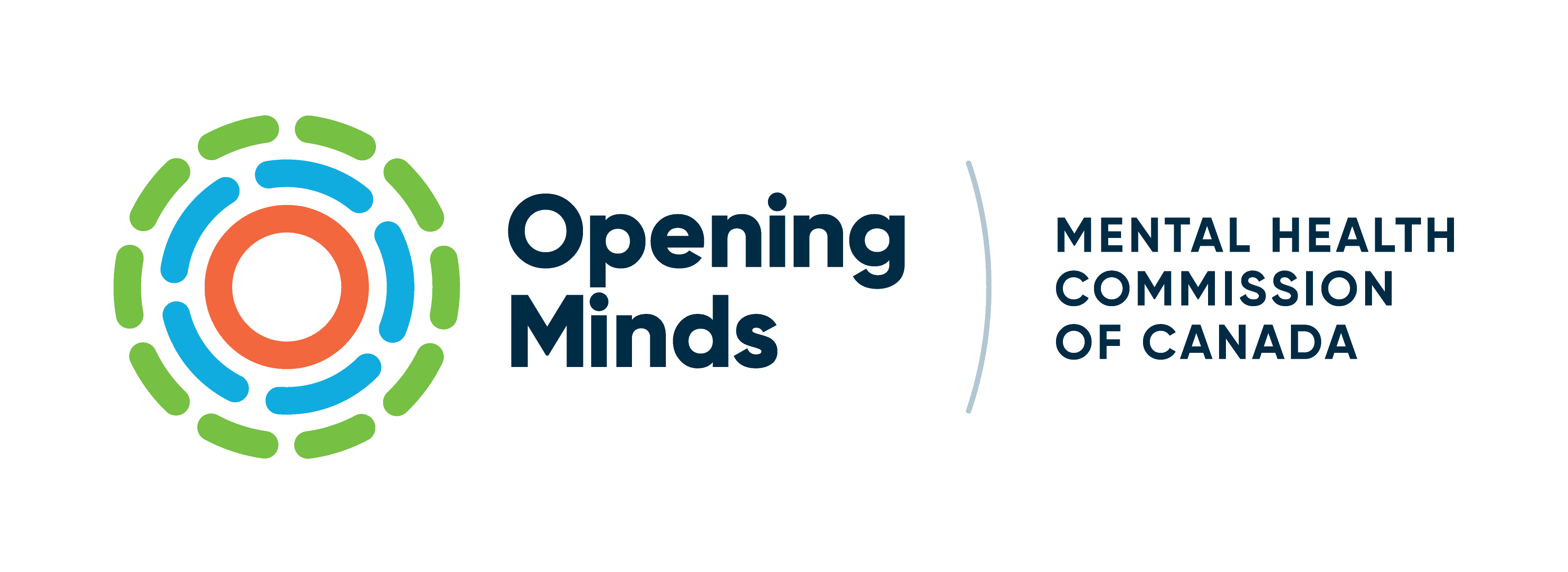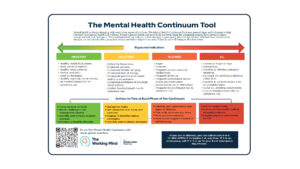About
Opening Minds is a not-for-profit social enterprise that provides training and the tools to talk about mental health, change negative attitudes, and reduce stigma related to mental illness.
Opening Minds is an initiative of the Mental Health Commission of Canada (MHCC) and is the largest systematic effort in Canadian history focused on eliminating stigma.
The number of people in Canada trained in an Opening Minds course is over 1 million and that number is growing.
Our Vision: A world where everyone supports and strives for good mental health, enabling people to live fulfilling lives.
Our Mission: To be the leader of evidence-based programs that promote mental wellness and resilience while eliminating stigma around the world.
Purpose: To empower individuals, communities and workplaces to build and sustain psychologically healthy and safe environments.
Values:
| Collaborative | We work cooperatively with others, sharing knowledge and resources, and contributing to a collective effort to achieve our common goals. |
| Innovative | We challenge convention and develop new ideas, solutions, and approaches that lead to improvement, progress, and greater positive impact. |
| Accountable | We are guided by integrity to do what’s right, own our actions, and deliver on our promises. |
| Equity Driven | We understand that people have different starting points and we intentionally adjust systems, processes, and expectations to create fair and meaningful access for all. |
| Courageous | We stand firm in our mission and approach, tackling hard truths and pushing for meaningful change, even when it’s uncomfortable. |
| Inquisitive | We ask, we listen, and we learn—because meaningful solutions begin with deep curiosity and a genuine desire to understand what matters most to our clients, partners, and team. |
| Wholehearted | We bring our full selves—drive, care, humour, and compassion—to everything we do. |
Opening Minds remains closely tied to the MHCC. Our programs are evidence-based, founded on research, and deliver proven outcomes.
Each branch of the MHCC shares the same goal: to have the greatest positive impact on the mental health and wellness of everyone in Canada.
Why is Opening Minds a social enterprise?
A social enterprise:
- sells goods or services as a significant portion of its revenues
- embeds social, cultural, or environmental purposes across its activities
- reinvests the majority of its proceeds back into its mission, rather than as a dividend to owners or shareholders
As a social enterprise, Opening Minds can be nimble and adapt to changing mental health needs across Canada, ultimately having a greater impact on everyone’s well-being.

